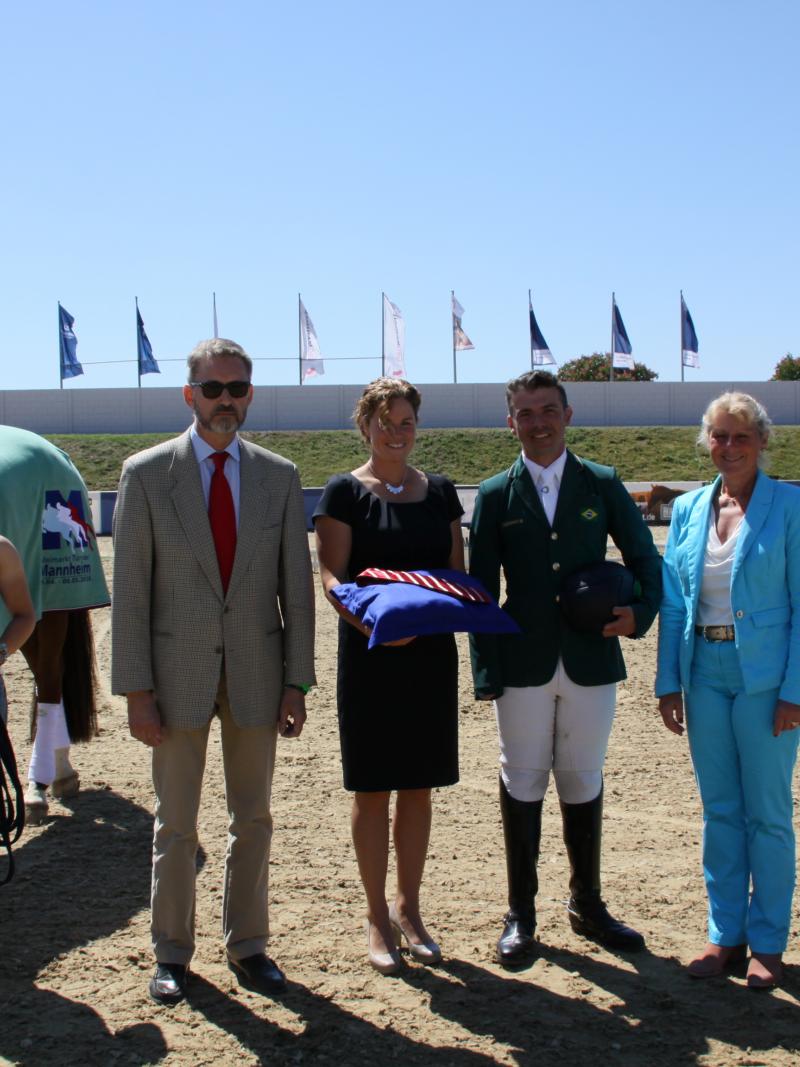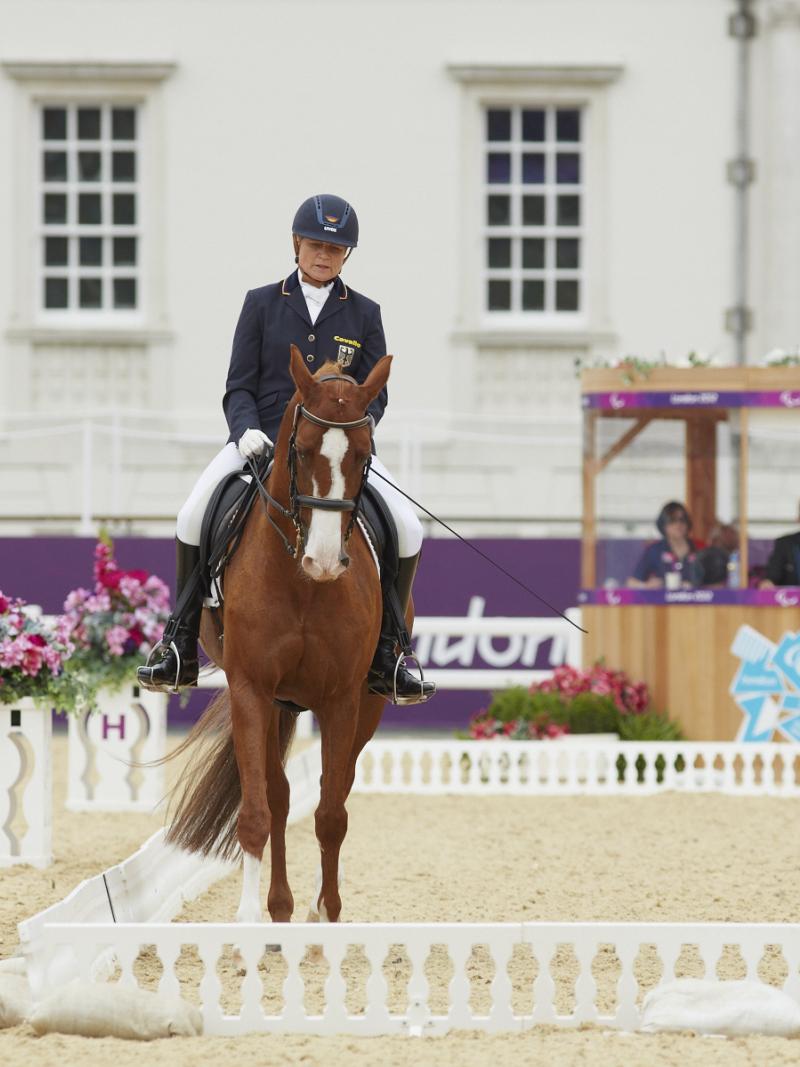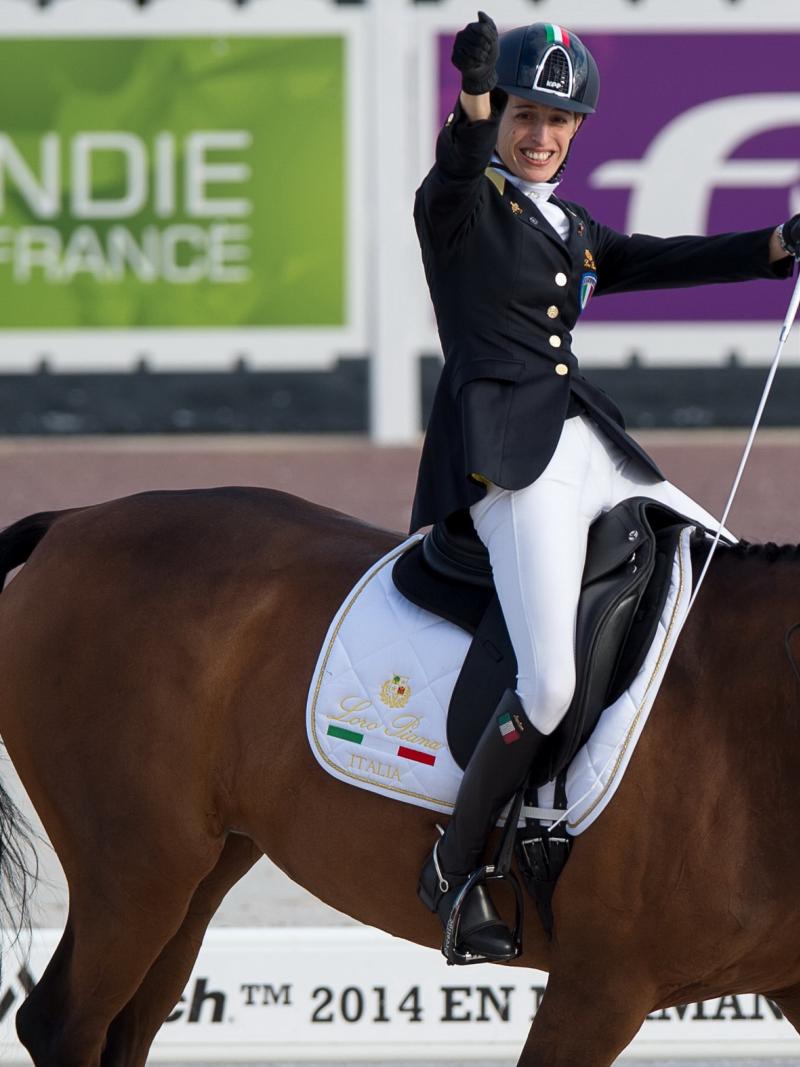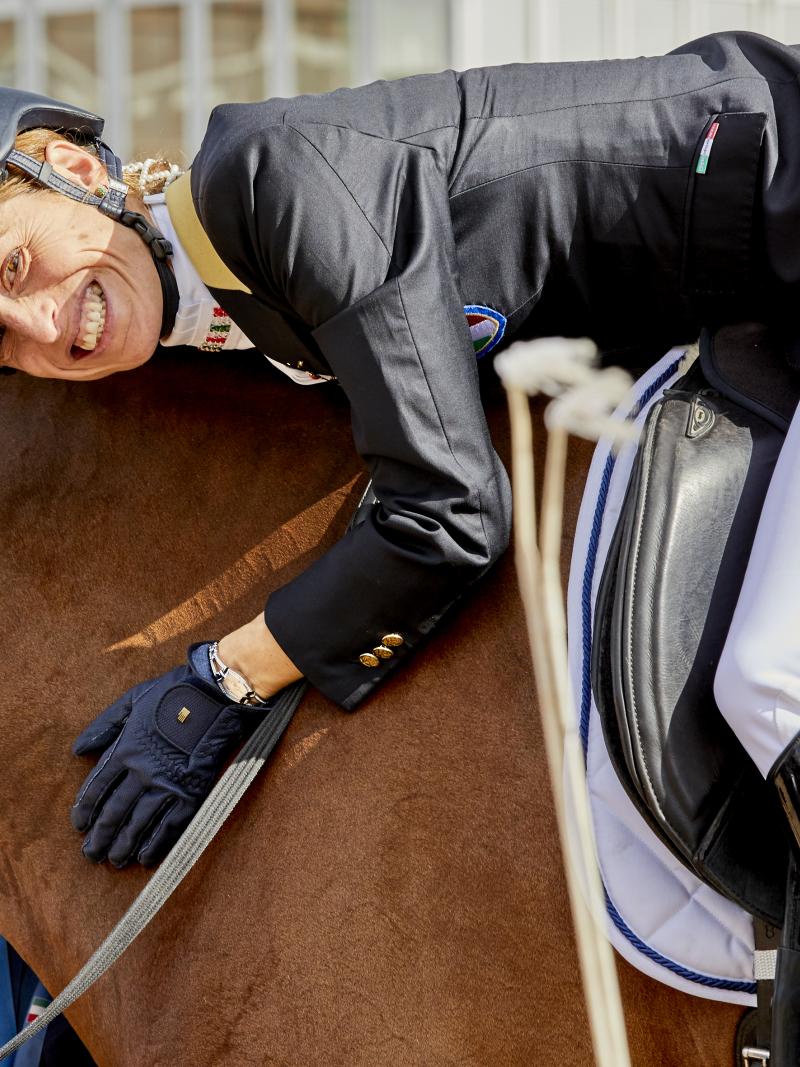Roberta Sheffield adjusts to new classification
Para equestrian rider shares the challenges of competing in new class 29 Jun 2018
Canada's Roberta Sheffield will be competing for the first time with a new horse
“A new grade means having to learn a whole new individual test which is a challenge, but not impossible"
Classification is at the heart of Paralympic sport, creating the level playing fields on which athletes compete. It is about matching the impacts of impairment as fairly as possible. And, sometimes, it changes.
That is what happened to one of Canada’s top Para equestrian riders, Roberta (known as Bert) Sheffield. She was reclassified this spring from grade IV to grade III, a judgement based on an assessment that the level of impairment caused by her condition – chronic rheumatoid arthritis – had increased.
“I was surprised by the reclassification as my medical evidence was the same,” she said. “But the physios assessed me and realised I had a problem and was more fragile.”
A change in classification means more than a change of the competition field for the athlete.
In Para equestrian, dressage is a partnership between the rider and a horse, and while a rider can mentally process the changes that reclassification brings, for the horse it is a bit harder.
Sheffield explained: “The change from IV to III is a big one. For starters we now compete in a smaller arena, and now have to take things much slower. There’s no canter at that grade in the individual test, for example. So, if I ask my current stallion to walk from A to B it’s as if he says ‘OK. I’ve done that. Now what?’
“And a new grade means having to learn a whole new individual test which is a challenge, but not impossible. But we also have to come up with a new freestyle routine too!”
Sheffield said the classifiers were very thorough and took into consideration her request to ride without stirrups, which she had wanted to do in her previous grade but could not.
Bettina De Rham, the FEI’s Director for Para Equestrian Dressage agreed: “Yes, reclassification is a risk, and particularly for an athlete with a ’review status’ such as Roberta Sheffield, but we see this process very much in the interest of the sport and the athletes.”
“We are really committed to maintaining a level playing field and ensuring that all our athletes are competing in the appropriate categories and we certainly don’t want to disadvantage them or their peers should their condition change.”
Among Sheffield’s support team is Clive Milkins, the former coach of Great Britain’s multi-European, world and Paralympic champion Sophie Christiansen. Now he travels the world mentoring and developing Para equestrian riders, and is also the performance manager and coach of Team Canada.
His advice on reclassification is simple: “It would always be to train hard, compete easy, which means pushing yourself in training so that any competition is easier.
“The psychological challenges of going up or down are complex, but I believe the classifiers always do the best job they can and that circumstances change. The key thing is that a good athlete will adapt to their new circumstances and continue their own journey.”








